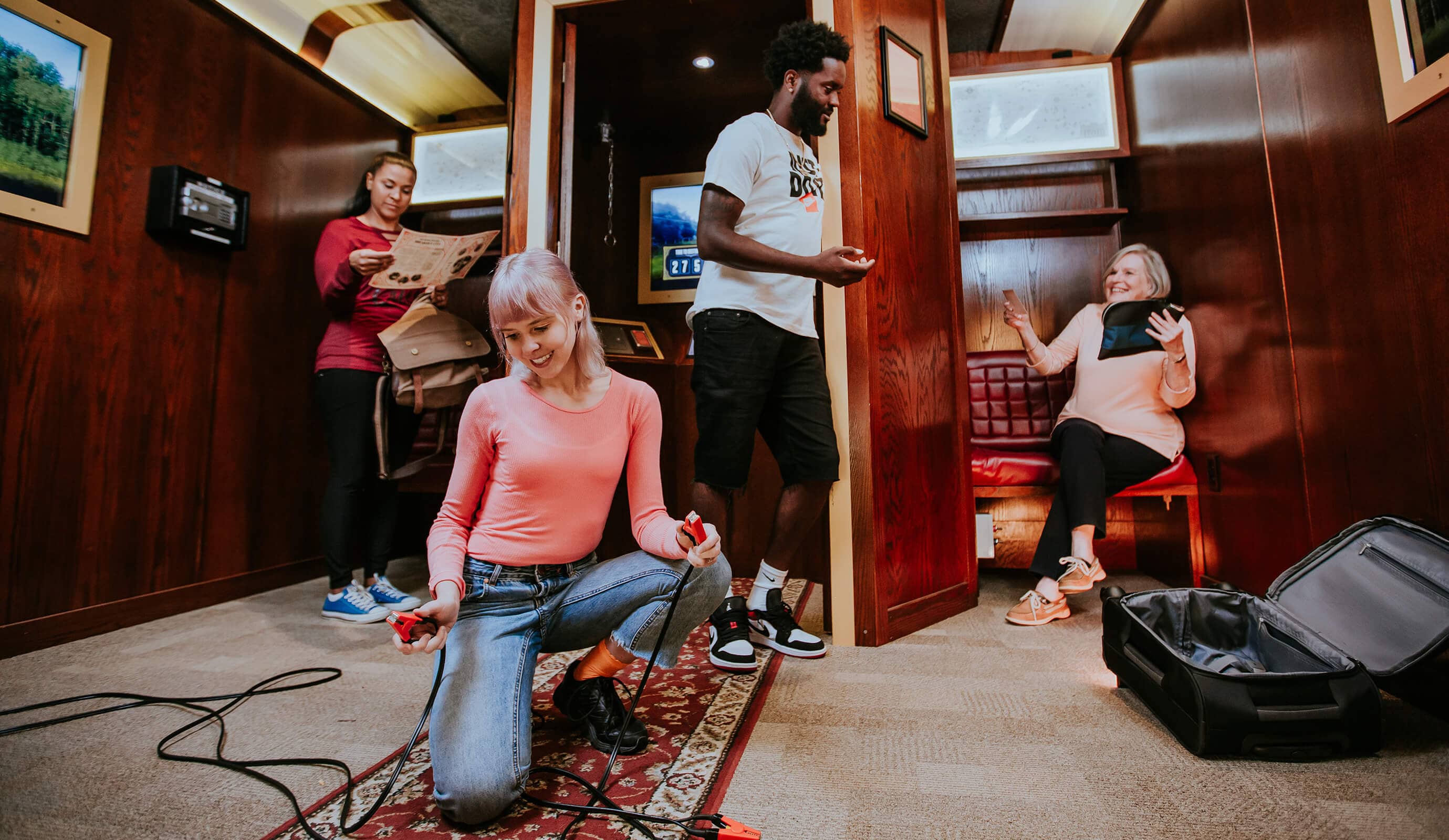Enjoyable and Challenging Escape Room-- Plan Your Next Experience
Enjoyable and Challenging Escape Room-- Plan Your Next Experience
Blog Article
Team Strategies: Exactly How to Team up Efficiently in a Retreat Space
Navigating the intricacies of an escape room requires greater than plain excitement; it needs a well-coordinated strategy grounded in clear interaction, critical duty projects, and skilled time monitoring. Teams must proactively pay attention to each participant's insights, appoint functions that align with specific toughness, and maintain normal check-ins to make certain emphasis and protect against redundancy. By fostering an atmosphere that values cohesion and adaptability, teams can substantially increase their efficiency and success prices. The nuances of these approaches can transform the experience, however just how specifically can they be carried out to maximize the capacity for success?
Establish Clear Interaction

To help with clear communication, it is vital to assign a main point of get in touch with for details dissemination. This role includes summarizing searchings for and proposed strategies to ensure every person stays on the exact same page. Additionally, taking on a methodical technique to conversations can protect against chaotic exchanges. Brief, concentrated updates from each team participant can maintain the team notified without overwhelming them with details - best escape room.

Designate Duties Purposefully
While clear interaction sets the foundation for efficient synergy, designating roles strategically makes certain that each group participant's staminas are utilized efficiently. In a getaway area scenario, the time-sensitive and complex nature of difficulties necessitates an efficient approach to job delegation. By identifying and leveraging specific competencies, groups can maximize their problem-solving capabilities and boost general performance.
Somebody with an eager eye for information could succeed in finding concealed items, while a logical thinker could be better fit to fixing challenges. This duty frequently requires strong business and social skills.
Second, make certain that duties are adaptable and versatile. As new challenges emerge, the group should have the ability to pivot, reapportioning jobs as required. This versatility helps maintain momentum and stops traffic jams that can occur because of stiff function assignments.
Inevitably, a strategic technique to function project not just maximizes the strengths of each employee however likewise promotes a cohesive environment, driving the group in the direction of a successful escape.
Utilize Diverse Skills
Acknowledging and utilizing the varied abilities within your group can considerably elevate your performance in an escape area. Each employee brings one-of-a-kind strengths to the table, and successfully leveraging these abilities can accelerate problem-solving and improve total effectiveness. As an example, an employee with solid logical abilities may stand out at understanding intricate codes or patterns, while another with eager empirical capacities might promptly find hidden ideas that others may neglect.
Encourage group participants to voice their understandings and concepts immediately, making sure that all potential services are thought about. In addition, assigning tasks that align with each member's toughness can stop bottlenecks and ensure that progression is constant.
Additionally, diversity in skills often converts to diversity in believing designs, which is important in an escape room setting. While some challenges may call for logical thinking and precision, others could profit from creative and side reasoning. By acknowledging and leveraging this diversity, teams can attend to a more comprehensive series of obstacles better, thus increasing their possibilities of a successful escape.
Manage Time Efficiently

First, allocate preliminary minutes for a fast study of the room. Recognize noticeable problems and split tasks based on employee' toughness, making certain that no one is still. Establish interior time checkpoints to assess progression periodically; as an example, objective to have half the puzzles resolved by the mid-point of the game. This technique can aid keep the group focused and avoid time from slipping away unnoticed.
Additionally, avoid browse around this web-site tunnel vision. If a problem is taking too long, revolve employee or proceed to an additional challenge, returning later with fresh viewpoints. Interaction is critical-- maintain everybody updated on fixed challenges and continuing to YOURURL.com be tasks to stay clear of redundant efforts.
Lastly, use any type of hints or clues sparingly but strategically - best escape room. Knowing when to request help can save useful time. By adhering to these time administration concepts, groups can dramatically boost their possibilities of an effective and satisfying getaway space experience
Debrief and Mirror
Reflection is an important element of group growth and enhancement in the context of getaway spaces. As soon as the obstacle is finished, whether effectively or not, it is crucial for the group to involve in an organized debriefing session. This process allows employee to evaluate their efficiency, identify strengths, and identify locations for renovation.
Begin the debrief by reviewing what went well. Highlight specific circumstances of efficient interaction, problem-solving, and cooperation. Recognizing these favorable habits enhances them and encourages their repetition in future obstacles.
Review minutes of confusion, miscommunication, or inadequate techniques. Motivate an open link and useful discussion where team members can share their perspectives without concern of objection.
Conclusion
Finally, effective cooperation in a getaway space is predicated upon clear communication, strategic duty tasks, the reliable utilization of diverse skills, and skilled time administration. Normal check-ins and structured debriefings are essential for preserving emphasis and cultivating continuous enhancement. By developing a cohesive and adaptive team setting, the possibility of effectively solving problems and accomplishing the goal of leaving the room is substantially enhanced. This strategy not only ensures success however additionally advertises collective growth and discovering.
Report this page